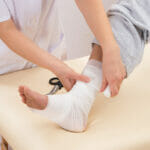Have you ever pondered how your body is able to determine when it is the appropriate time to begin the process of digesting food or moving waste through your intestines? It may appear to be a mystery, but in reality, there are a number of reflexes at work within your digestive system that assist regulate these processes.
These reflexes help keep your digestive system working properly. The gastrocolic reflex, the colocolic reflex, the rectocolic reflex, and the anorectal reflex are all examples of these reflexes. Each of these reflexes plays a vital part in digestion and bowel movement.
In this piece, we are going to delve into the science that lies behind these reflexes and investigate how they work together to ensure that your digestive system remains in tip-top shape. Continue reading for a fascinating look at these important bodily functions, whether you’re suffering from constipation or simply wondering about how your internal workings function.
The digestive and excretory processes working together
The process of digestion and excretion will begin as soon as you take that first bite of your favourite dish. When food first enters your mouth, your teeth immediately begin to grind it up into smaller bits, which makes it much simpler for you to swallow. In addition, the enzymes in your saliva, such as amylase, which are responsible for the digestion of carbohydrates, begin to break down the food as it passes through your mouth.
The digestive process will continue once the food has been swallowed and has reached the stomach. Proteins are broken down even further by the stomach’s production of gastric acids and enzymes like pepsin, among others. Additionally, gastric acids aid in the killing of any potentially dangerous bacteria that may be present in the food. After this, the food is ground up into a semi-liquid paste known as chyme, which is subsequently transported into the small intestine.
The process of digestion continues in the small intestine, where additional enzymes from the pancreas and bile from the liver and gallbladder are added to the chyme. This helps break down the food that has been consumed. The nutrients in the meal are absorbed through the wall of the intestinal tract and into the bloodstream. From there, they are carried to various regions of the body, where they are used for energy and growth.
After the nutrients have been absorbed, what is left is waste, which must then be eliminated, and this process takes place in the large intestine or colon.
Gastrocolic Reflex
When food goes into the stomach, a reflex known as the gastrocolic reflex kicks in. This response is automatic. It causes the colon to contract, which in turn moves the faeces towards the rectum so that it can be eliminated later. This reaction is essential for controlling activities such as bowel motions and ensuring that food may flow through the digestive system as quickly and effectively as possible.
It is vital to eat at the same time every day in order to stimulate the gastrocolic reflex. This will allow your body to better adjust and regulate your digestion, which will improve your overall health. The response will take place when food enters the stomach, creating a contraction in the colon, which in turn makes passing stool a more natural process. Consuming foods that are high in fibre can, on the other hand, cause the reflex to be triggered even more, which makes it simpler and less painful to defecate. When the gastrocolic reflex is not operating as it should, constipation can sometimes be an indication of the problem
Colocolic Reflex
Another response that takes place in the colon is known as the colocolic reflex. The colocolic reflex, in contrast to the gastrocolic reflex, is associated with the transverse colon, and more particularly, movements in the transverse region of the colon. The reflex takes place if there is either faeces or gas present in the transverse colon. This sends a signal to the descending colon, instructing it to transport the faeces towards the rectum.
This reaction is essential to keep from becoming constipated. If the faeces are allowed to remain in the transverse colon or the descending colon, respectively, they dry out and become difficult to pass because of their consistency. If you experience the urge to defecate but are unable to do so, you may try applying pressure to the lower abdomen in an effort to manually activate the colocolic reflex. In addition, you can try getting up and moving around, practising squatting, or doing other activities that stimulate the bowels in order to assist in moving your colon.
Rectocolic Reflex
An alternative name for the rectocolic reflex is the enterogastric reflex. This reflex involves the passage of faecal matter into the rectum, which sends a message to the brain that it is time to initiate the process of defecation. The reflex works by relaxing the internal anal sphincter, which is an automatic muscle that opens up when faeces presses against it. This allows the stool to pass through the body more easily. While this is happening, the muscles in the pelvis tighten, which helps move the stool through the anal canal.
You can stimulate the rectocolic reflex by sticking to a regimen when it comes to your bowel movements, creating an untense setting in which to defaecate, and keeping track of your bowel motions. In addition, maintaining healthy bowel habits, such as eating a diet that is high in fibre, being hydrated, and avoiding constipation are all things that can help this reflex function appropriately.
Anorectal Reflex
The anorectal reflex is the last reflex that is activated during the process of digestion and excretion. It entails the passage of faeces down the anal canal in order to complete the process. When faeces pass through the anal sphincter and into the anal canal, sensory nerves in the anal sphincter send impulses to the brain. These impulses tell the brain to move stool via the pelvic floor muscles and out the anus so that it can be eliminated.
If you hold your bowel movements for an extended period of time, the anorectal reflex may lead you to become constipated. When you push too hard or for too long, you risk putting strain on the anal sphincter, which can result in pain as well as haemorrhoids. Maintaining healthy bowel habits such as drinking enough water, consuming foods high in fibre, relaxing during bowel movements, practising exercises that stimulate the bowels, and creating a regular pattern for defecation will assist optimise this reflex. Other healthy bowel habits include: relaxing during bowel movements, practising colon-stimulating exercises, and drinking enough water.
Frequently Asked Questions
All right, without further ado, here are some questions and answers that are frequently asked regarding the several reflexes that are involved in the process of digestion and elimination:
After a meal, a typical question people ask is how long it takes for the gastrocolic reflex to kick in.
After a meal, it may take anything from half an hour to many hours for the gastrocolic response to manifest itself. A. In most cases, it is determined by the kinds of foods you consume and how your digestive system processes those foods.
Is it possible for stress to have an effect on the gastrocolic reflex?
A: The gastrocolic reflex can indeed be affected by stress, which can then lead to irregular bowel motions. The digestive system can be disrupted by stress, resulting in cramping and bloating, which can impact other reflexes in addition to the gastrocolic reflex.
How can I make the colocolic reflex work more effectively?
A: The colocolic reflex can be stimulated by being active and drinking plenty of water. This is the most effective method. Consuming a diet that is high in fibre can assist in the maintenance of regular bowel motions that are healthful. In addition, specific workouts like as squatting, walking, and stretches can assist in the activation of the colocolic reflex.
To what extent are drugs able to influence the rectocolic reflex?
Yes, the rectocolic reflex can be affected by some drugs, which can lead to gastrointestinal issues such as constipation or diarrhoea. If you are having these issues, you need to make an appointment with your physician so that he or she can increase the dosage of your medicine or suggest other possible solutions.
What are some potential issues that can arise with the anorectal reflex?
A: Issues with the anorectal reflex can be brought on by a number of different things, the most common of which include adverse reactions to medications, nerve injury, rectal surgery, and spinal injuries. Developing healthy bowel habits, learning relaxing techniques, and getting professional medical assistance can all be helpful in addressing these issues.
References
Boundless. (n.d.). Gastrointestinal Reflex Pathways. In Anatomy and Physiology. Retrieved from https://courses.lumenlearning.com/boundless-ap/chapter/gastrointestinal-reflex-pathways/
Davenport, K. (2018). The anatomy of the digestive system. TeachMeAnatomy. https://teachmeanatomy.info/abdomen/gi-tract/
Healthline. (n.d.). Defecation reflex: How it works. Retrieved November 26, 2020, from https://www.healthline.com/health/defecation-reflex#how-it-works
Lennard-Jones J. E. (1993). Clinical management of constipation. Pharmacology, 47 Suppl 1, 216–223. https://doi.org/10.1159/000139861
Lysy, J., & Israeli, E. (2019). Constipation. StatPearls. https://www.ncbi.nlm.nih.gov/books/NBK493173/
Malone, J. C., & Thavamani, A. (2023). Physiology, Gastrocolic Reflex. In StatPearls [Internet]. Treasure Island (FL): StatPearls Publishing. Retrieved from https://www.ncbi.nlm.nih.gov/books/NBK549888/ (Updated 2022 May 8).
National Institute of Diabetes and Digestive and Kidney Diseases (NIDDK). (n.d.). Digestive System: How It Works. Retrieved August 24, 2021, from https://www.niddk.nih.gov/health-information/digestive-diseases/digestive-system-how-it-works.
National Institute of Diabetes and Digestive and Kidney Diseases. (2021). Bowel control problems (Fecal incontinence https://www.niddk.nih.gov/health-information/digestive-diseases/bowel-control-problems-fecal-incontinence
Sarin, S. (2020). Understanding the gastrocolic reflex. Verywell Health https://www.verywellhealth.com/gastrocolic-reflex-5224821

